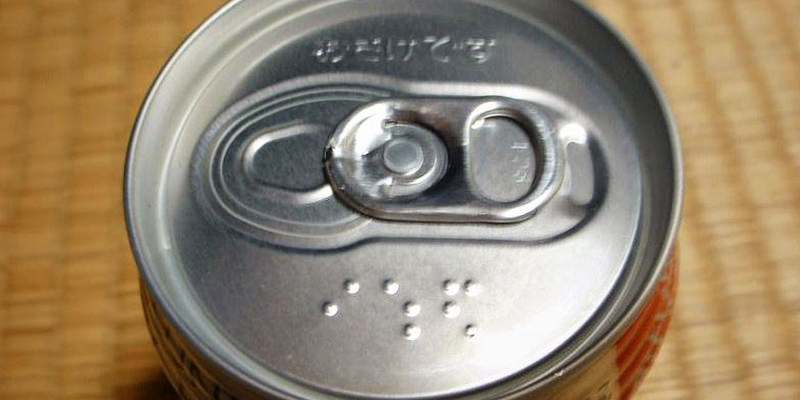The likelihood of picking up a six-pack of canned beer and accidentally mistaking it for soda, thereby becoming intoxicated without realizing it, isn’t a problem for those of us with healthy eyesight, but if you’re blind, the likelihood of this occurring is a real possibility, especially if you live in a place where soda and beer are sold very close together. The problem is compounded if both of these beverages happen to be in your refrigerator at the same time. While you might enjoy beer, you may not want to drink it at breakfast.
In Japan, this problem is even more of an issue because it’s not just soda and beer that’s packaged in aluminum cans. Recognizing this, about 10 years ago Japanese brewers began stamping the word “beer” in Braille on the top of their cans, right next to the tab you’d pull to open it up and take a swig. It wasn’t a law mandated by the government, but was initiated by the breweries themselves, coming together to provide accessible information for a special-needs part of the Japanese population. (This is similar to the story of how M. Chapoutier decided to put Braille on its wine bottles.)
Because this was not a mandated government program but a self-imposed action by the brewers, there isn’t a uniformity to what’s printed on top of the cans. Some simply say “alcohol” while others have the actual brand name printed in Braille, such as “Kirin Beer,” and still others simply have the word “beer” stamped on the top.
And the brewer’s aren’t just doing this to protect against a lot of accidentally drunk people wandering around the streets and getting hurt; they’re doing it because some people actually get sick if they drink. Genetic differences make many Asians susceptible to “alcohol flush reaction,” an allergic reaction caused when the body can’t easily metabolize alcohol. It’s not fatal but it’s uncomfortable, resulting in redness in the face, neck and shoulders and, in some cases, nausea, dizziness, headaches and even the swelling and itching of body parts. Labeling beer to help the blind recognize the can they’re holding is beer helps a lot of people with the condition avoid a night of discomfort.
For everyone else, labeling cans allows people to drink beer when they actually want to drink beer. It’s the right thing to do.

